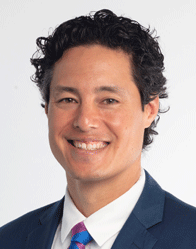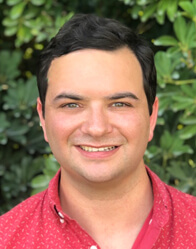Season 1 – Episode 57 – COVID-19 and the 2023 Flu Season
The 2023-24 flu and COVID-19 season is a critical moment in public health, combining the challenges of the ongoing COVID-19 pandemic with the co-circulation of seasonal flu strains. Vigilant vaccination and public health measures are crucial to curb the spread of both illnesses. Health authorities advise getting the flu shot to alleviate strain on healthcare systems, prevent co-infections, and protect vulnerable populations. Ongoing research and surveillance will guide response strategies, underscoring the importance of personal responsibility, community cooperation, and adaptability in addressing these interconnected public health threats.
Episode Transcript
Click to expand/collapse
Darren Gaddis: From CITI Program, I’m Darren Gaddis, and this is On Campus. Today, I spoke with Philip Chan, an associate professor in the Department of Medicine and School of Public Health at Brown University and an infectious disease physician. As a reminder, this podcast is for educational and entertainment purposes only. It is not intended to provide legal advice or guidance. You should consult with your organization’s attorneys if you have questions or concerns about relevant laws and regulations discussed in this podcast. Additionally, the views expressed in this podcast are solely those of the guests and do not represent the views of their employer. This podcast provides general information and a discussion about medicine, health, and related subjects. This podcast is not intended to provide medical advice. Please be sure to contact your physician if you have questions about your health care. Hi, Phil. Thank you for joining me today.
Phillip Chan: Thank you so much for having me.
Darren Gaddis: To get us started today, what is your educational and professional background?
Phillip Chan: Yeah, so I am a infectious diseases physician. I’m on faculty here at Brown University. I also work for our state health department on all things related to infectious diseases and public health.
Darren Gaddis: When is flu season in the United States, and do experts believe this flu season will be especially active?
Phillip Chan: Yeah, what a great question. Influenza, flu season, generally starts sometime early winter. It’s a little bit variable depending on from season to season, sometimes November/December, sometimes into January/February. But I think what is typical is that there is always a flu peak, except during that year of the COVID pandemic when everyone was at home. That was one of the very few benefits of COVID is that because everyone was at home and masking and social distancing is that we didn’t have a flu peak that year. But since that time, and that relates to this year as well, we do expect certainly a flu peak this year, and we expect it to be pretty significant. Sometimes, it’s tough to tell, sometimes, it’s difficult to predict, but I think that we are still seeing some of the side effects, if you will, from the COVID pandemic. And I do expect that we will see a pretty significant flu peak this year.
Darren Gaddis: Specifically thinking about college campuses in mind, how can administrators, faculty, staff, and even students protect themselves against the flu?
Phillip Chan: I think with all the attention of COVID the last few years is that the flu has really fallen to the sideline. But at least for our state, I was reviewing some of the… I’m just reminded that flu does cause a significant amount of morbidity and even mortality in people. We see a bunch of deaths every year across the US from flu. We also see a number of hospitalizations. Now, similar to COVID, the people that are affected most and are most at risk of serious disease are folks that are older, are people that have other comorbid health conditions. And really, one thing that we learned during the COVID pandemic is that everything that protects us against the flu and COVID will protect against the other one as well.
So, most importantly, I think when we talk about the flu, things like just getting the vaccine that’s the most important thing. And the CDC recommends that everyone six months and older in the US get vaccinated, and I certainly agree with that. And I think other basic things as well. So, staying home if you’re sick, staying out of classes, making sure to, if you are sick and going out, wearing a face mask can protect other people, can protect you, certainly if you are immunocompromised, et cetera. But again, I think the number one thing is to make sure that you are vaccinated for the flu.
Darren Gaddis: In my opinion, there are often several misconceptions about vaccines in general. Can you clear some of those up to today specifically, can the flu vaccine give you the flu, and how long does it take for the vaccine to be effective once it’s administered?
Phillip Chan: That’s a great question, both of those. One thing that we hear a lot about is misinformation related to vaccines in general, but the flu vaccine. And I think, as you’re mentioning, one of the number one things I hear about is that people don’t want to get the flu vaccine because last time they got it, they got the flu from the vaccine, or they just don’t worry about the flu. Again, in a lot of people, flu can be mild, but in a number of people, it can be pretty significant. And influenza can cause pretty significant disease. Even in people that are a little bit younger, twenties, thirties, forties, it can be significant. So the other thing, too, I’m reminded, is that there’s so many respiratory viruses out there. Some of the common ones, of course, COVID, flu. You may have been hearing about RSV in the news. But there are literally dozens and dozens.
So, the flu vaccine does not cause flu. It’s dead. It’s inactivated. There’s nothing about the flu vaccine that could ever cause flu itself. And what I suspect usually happens is that people get another common cold virus that they attribute to the flu vaccine. But again, these things are so common, and usually, people have several cold viruses. Right?
Darren Gaddis: Generally speaking, when would it be a good time to see a doctor if somebody was feeling ill?
Phillip Chan: I think for mild symptoms, a little bit of a fever, runny nose, sore throat, no need necessarily to check in with a doctor. Of course, if you have any questions, I would certainly encourage people to check in with their local student health center. I know a bunch of providers, at least in our state, and they’re all wonderful, phenomenal people. I think the real warning things for me are if people keep getting worse, if they’re not getting better, if people have things like trouble breathing or really severe headaches or things like that, if people aren’t able to function for whatever reason, then those are all warning signs, and people should really either go to the emergency room or certainly go see a doctor.
Darren Gaddis: Beyond the flu vaccine, what are some ways that individuals can protect themselves from the flu?
Phillip Chan: I think just very basic things that we talk about in everyday life. Just making sure that you are getting plenty of sleep, making sure you’re eating healthy, making sure that you get some exercise. That triad of self-care, exercise, sleep, and just eating right is so protective against so many things, not just the flu. But just making sure that you are living a healthy lifestyle and taking care of yourself at the end of the day and that’s going to protect yourself not only from flu and COVID, frankly, but a whole host of other things as well.
Darren Gaddis: I personally have not heard a whole lot about COVID-19 this year. Is COVID-19 still a concern amongst health experts?
Phillip Chan: COVID-19 is still certainly a concern. I know it seems like we’re all trying to forget about it. It’s been a somewhat traumatic, of course, last few years. It has been increasing across parts of the world, including here in the US in some places. I think the important thing to know is there is an updated vaccine out. It is recommended that people get that. And I would certainly recommend that and especially recommend it for people that are immunocompromised, for people that are older, 65 and older, and certainly for those that have other health conditions, that’s a group that’s really going to be most at risk. I would really strongly recommend that group, if you haven’t had COVID in the last 90 days, to really get this newer COVID vaccine that’s out there.
COVID is still a thing. People are still being hospitalized for it. They are still being sick. We are seeing less and less of serious disease because people are getting vaccinated. And there’s also a degree, of course, of natural immunity, and that’s all good. But again, for folks that may be more at risk of COVID definitely still want to get that updated vaccine.
Darren Gaddis: Beyond getting a COVID-19 booster vaccine, what else could individuals do to protect themselves against COVID-19?
Phillip Chan: I know that some of these topics are sensitive, but things like masking. Masking works. I think we have a lot of data now out about masking. Masking protects. If you have COVID, even if you’re asymptomatic, masking will help prevent spread to others. If you wear a mask yourself, and especially one of the higher grade masks, like an N95 mask, like a KN95 mask, that will protect you as well from getting infected. And I think, especially when COVID is peaking or surging in your area, in your community, that doing things like masking, especially in more crowded indoor spaces, may make sense. And then everything else that we’ve learned about as well, social distancing, ventilation, opening the windows, again, making sure to stay home if you’re sick, making sure others stay home if they’re sick. Basic things that we’ve learned throughout the pandemic are still all the things that will continue to protect you against these newer variants.
Darren Gaddis: What else should we know about the flu and COVID-19 on college campuses?
Phillip Chan: I think, not to be overly worried about them, but just to take some reasonable precautions. Make sure that you’re vaccinated. That to me is a low-hanging fruit. Make sure that you get sources of information from reliable sources like the CDC, like your doctor, like other medical providers. One thing that I think that has concerned all of us in public health is just the amount of misinformation out there. Before you make a decision, just make sure that whatever you are basing your decisions on is fact, is evidence-based, and then make the decision that’s best.
Darren Gaddis: Phil, thank you for joining me today.
Phillip Chan: Thank you so much for having me.
Darren Gaddis: Thank you for listening to today’s episode. And be sure to follow, like, and subscribe to On Campus with CITI Program to stay in the know. If you enjoyed this podcast, you may also be interested in other podcasts from CITI Program, including On Research and On Tech Ethics. Please visit CITI Program’s website to learn more about all of our offerings at citiprogram.org. I invite you to review our content offerings regularly as we are continually adding new courses, subscriptions, and webinars that may be of interest to you, like CITI Program’s What You Need to Know About Sexually Transmitted Infections course. All of our content is available to you anytime through organizational and individual subscriptions.
How to Listen and Subscribe to the Podcast
You can find On Campus with CITI Program available from several of the most popular podcast services. Subscribe on your favorite platform to receive updates when episodes are newly released. You can also subscribe to this podcast, by pasting “https://feeds.buzzsprout.com/1896915.rss” into your your podcast apps.
Recent Episodes
- Episode 56: First Generation Students in Higher Ed
- Episode 55: Generative AI in Higher Education
- Episode 54: College Student Loneliness
- Episode 53: Diversity and Affirmative Action: Higher Education Admissions
Meet the Guest
Philip Chan, MD, MS – Brown University
Philip A. Chan, MD, MS, is an Associate Professor in the Department of Medicine and School of Public Health at Brown University and an infectious diseases physician. Dr. Chan also serves as Consultant Medical Director for the Rhode Island Department of Health Division of Preparedness, Response, Infectious Disease and EMS (PRIDEMS).
Meet the Host
Darren Gaddis, Host, On Campus Podcast – CITI Program
He is the host of the CITI Program’s higher education podcast. Mr. Gaddis received his BA from University of North Florida, MA from The George Washington University, and is currently a doctoral student at Florida State University.












